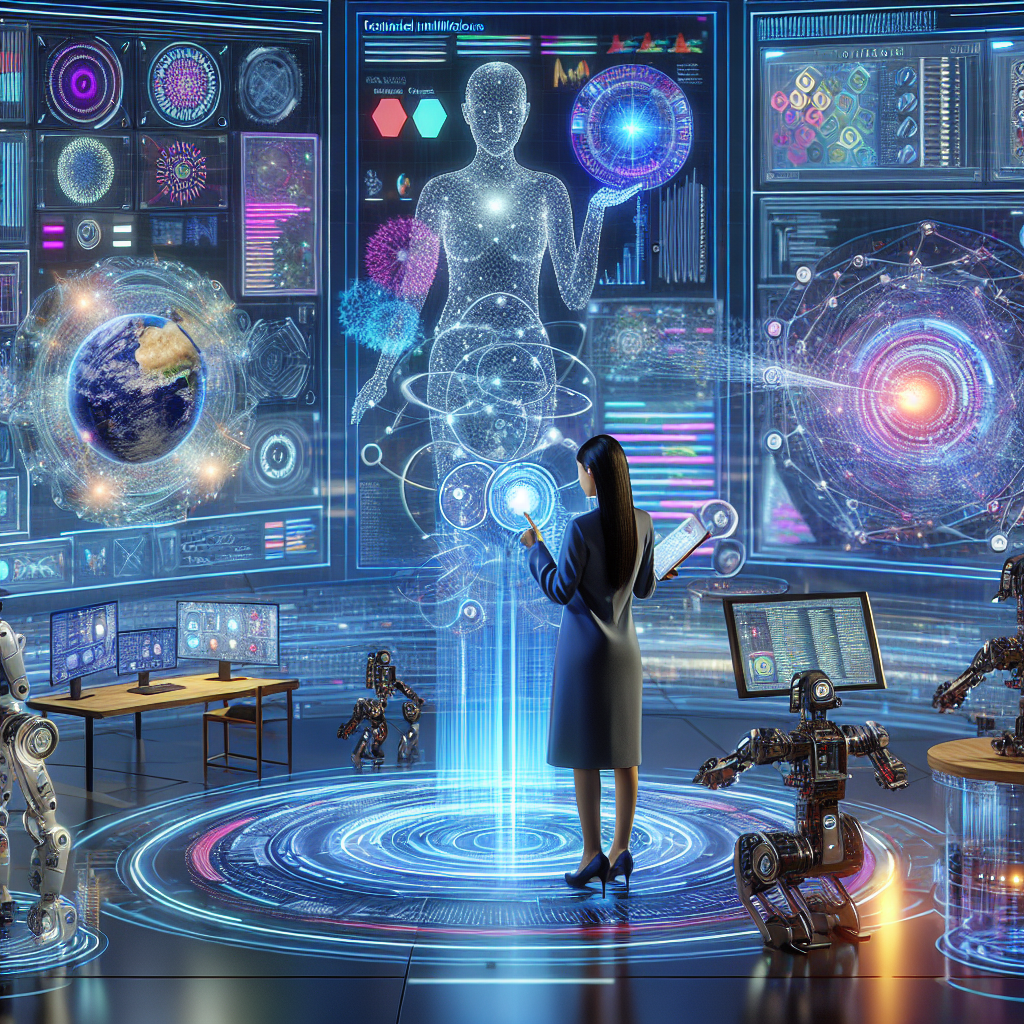Navigating the Tides of Change: An In-depth Look at AI's Latest Developments
The world of artificial intelligence is a rapidly evolving landscape where breakthroughs and shifts in leadership can occur as swiftly as the technologies they oversee. In this comprehensive article, we will delve into the recent upheavals and advancements in the AI space, as highlighted in a recent video that has caught the attention of industry watchers and enthusiasts alike. The content of the video signals significant developments, including a change in leadership at OpenAI, updates on GPT-4 and GPT-5, and intriguing new AI-related products from tech giants like YouTube and Microsoft.
A Leadership Shakeup at OpenAI
One of the most significant pieces of news is the departure of Sam Altman from the helm of OpenAI. The abrupt firing of a CEO in any technology company can have a profound impact on the direction and momentum of its initiatives. The board's decision, ostensibly due to communication issues, might hint at deeper strategic divergences or shifts in the organization's vision. As we anticipate further details, it's worth considering how this change will influence OpenAI's trajectory, especially concerning their flagship products like GPT-4 and the upcoming GPT-5.
The GPT-4 and GPT-5 Development Curve
GPT-4 has been a cornerstone of OpenAI's endeavors, and the recent decision to halt new customer sign-ups due to overwhelming demand hints at both its success and the scalability challenges it faces. With AI systems becoming increasingly complex, managing growth sustainably is an essential aspect companies need to navigate carefully. The promise of GPT-5 looms on the horizon, with expectations of further enhancements in natural language processing and generation capabilities.
The transition to a new CEO could either be a catalyst for accelerated innovation or a period of recalibration for OpenAI's strategic plans. Regardless, the AI community is eagerly watching as the organization navigates this leadership transition while continuing to push the boundaries with its AI models.
YouTube and Google DeepMind: Harmonizing AI and Music
An exciting frontier for AI is in the creative domain. YouTube and Google's DeepMind have unveiled 'Lia', an AI that can replicate artists' voices, offering a new tool called 'Dream Track' for music creation. The initiative is a striking example of AI's potential to collaborate with human creativity, providing artists and producers novel means to craft their work. It's a clear signal that AI's role in augmenting human creativity is gaining traction and is set to become a staple in industries reliant on creative output.
For more insights on Lia and Dream Track, consider exploring the official blog post from YouTube that details this innovative collaboration:
[Insert link to relevant YouTube blog post]
The Rise of Unofficial GPT Stores
The lack of an official GPT marketplace from OpenAI has led to the emergence of unofficial GPT stores, which catalog custom AI models. As the user aptly points out, finding practical and efficient AI models among a sea of options can be daunting. The inception of these stores is a grassroots response to a market need, offering users a way to sift through and leverage the most useful GPT models available. This points to a broader trend where the community steps in to fill gaps, often accelerating innovation and accessibility of AI products.
One store that stands out is GPTsDeck.com, which has been mentioned for its user-friendly sorting and search functions. This and other similar platforms are not just stopgaps but could potentially shape how AI marketplaces operate in the future.
Microsoft's Rebranding and Meta's Generative AI Tool
Microsoft is yet another tech titan shaping the AI landscape. With the rebranding of Bing AI to 'Co-Pilot', Microsoft aims to clarify its offerings and streamline user experience. This alignment indicates a strategic push to integrate AI more deeply into user interactions and productivity tools. Additionally, their initiative to incorporate AI-generated content plugins reflects a wider industry movement towards seamless AI integration in both consumer and business applications.
Meta, not to be left behind, has introduced 'Emu Video' and 'Emu Edit', signifying its foray into generative AI for media creation. This move could have substantial implications for content creation across Meta's platforms, possibly revolutionizing how digital advertising and user-generated content are produced.
For a closer look at Emu Video and Emu Edit, you may want to read Meta's full blog post:
[Insert link to Meta's blog post]
Keeping AI Ethical and Transparent on YouTube
YouTube's new rule requiring content creators to disclose if their content is AI-generated is a pivotal step towards maintaining transparency and ethics in digital media. This policy reflects growing concerns over the potential misuse of AI and the importance of clear labeling to distinguish between human and AI-generated content. As AI becomes more integrated into content creation, such measures will be increasingly vital to maintain the integrity and trustworthiness of digital platforms.
In summary, the AI landscape is marked by continuous innovation, unexpected changes, and new products that expand the boundaries of what these technologies can achieve. The developments highlighted in this analysis demonstrate not only the pace at which AI is advancing but also the growing need for governance and ethical considerations in its application.
Each progress, whether in leadership, product offerings, or ethical guidelines, is a piece in the larger puzzle of AI's impact on society. As AI continues to intertwine with various aspects of our lives, staying informed and critically engaging with these advancements will be crucial for consumers, creators, and technologists alike.
In the unfolding narrative of AI's progress, let's keep a keen eye on how these technologies are guided, used, and ultimately democratized for the greater good.
Related News
- Exploring the Latest Frontiers in AI: A Comprehensive Analysis
- Analyzing the AI Tsunami: A Dive into the Latest Developments
- Weekly AI Insights: Major Announcements and Industry Shifts
- The Latest in AI: Innovations, Developments, and Industry Trends
- Navigating the AI Tsunami: A Deep Dive into the Currents Shaping Our Digital Future
